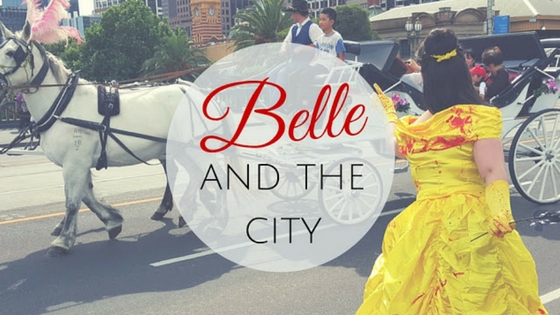Role-play games and improv: Characters
I was well aware that role-play games, such as Dungeons and Dragons, involved some form of acting, at least to impersonate a character that may, or may not, share the same values and attitude as your regular self. But acting as a fantasy version of yourself is completely different than playing a random character in a scripted play.
One of the first step people take towards fantasy roleplaying is to create a character they would be comfortable in. Despite being a dwarf and a wizard, this character will react in the same way as you would, would value your team mates and quests just as you would in real life, and so on, making it immensely easier to play such role while remaining within your comfort zone.
Funnily enough, one of the first exercises we did at Improvisation Theatre, improv for short, was to state something true about us, followed by something we didn’t agree with or believe in, then something blatantly absurd that we had to believe in and motivate on the spot, prompted by our teacher.
Not that easy after all.
This is an exercise that would be quite useful while playing any role-play game. Especially considering that you are there to create a character, not an alter-ego. Hence your character’s beliefs and behaviour aren’t necessarily your own, even though it helps to relate situations to reality and, when in doubt, ask yourself: how would a normal person react to this? A question that is often forgotten while improvising a scene, resulting in deep revelations that don’t get the reaction they deserve.
Also, please, don’t bring in the game relationships and frustration from the real world. There are things that your character can’t know and can’t have felt, let them be free to experience their improvised fantasy life.
Talking about life, your character, both in a role-play game and in improv, interacts with other ones. You should respect that, and make everyone feel involved, creating balance together. In both situations you are somewhat required to create a character with a background, ideals, goals, flaws, and specifics, and have them organically interact with other characters on stage, or around the table. After all, no one will know about that strong desire to become, for example, the richest leader, if the interaction is limited to what you are doing. Talk about your relationship instead, exchange motivations, tell each other a secret.
One of my improv teachers told us to show the audience 'the day that changed your characters' lives'. Unfortunately, this is a suggestion that might be harder to put into practice while role-playing in a Dungeons and Dragons lengthy campaign.
As a matter of fact, a successful scene presents something that ties all characters together, be it a funny game or a quest. That, not what you’re doing in the moment, is your reason to be with the others. Ask yourself why are you here? Why didn’t you leave already? What drives you to interact this way?
So, don’t try to do your own thing, you are no Gandalf going away to fight the Balrog on your own to gain experience, stick with your team and build an organic scene. That will be your character development.
Mind you, these concepts are absolutely valid for both Improvisational Theatre and Dungeons and Dragons, each role helps develop the scene, or the game, or the game on stage, or the improvised scene in the game. You get my point.
If you are interested in learning more about all these similarities and some tips and tricks on how to be a better (team)player, check out this article about what to do when your turn is approaching and you could either panic or prepare.
Inspired by DawnforgedCast
Image: via
One of the first step people take towards fantasy roleplaying is to create a character they would be comfortable in. Despite being a dwarf and a wizard, this character will react in the same way as you would, would value your team mates and quests just as you would in real life, and so on, making it immensely easier to play such role while remaining within your comfort zone.
Funnily enough, one of the first exercises we did at Improvisation Theatre, improv for short, was to state something true about us, followed by something we didn’t agree with or believe in, then something blatantly absurd that we had to believe in and motivate on the spot, prompted by our teacher.
Not that easy after all.
This is an exercise that would be quite useful while playing any role-play game. Especially considering that you are there to create a character, not an alter-ego. Hence your character’s beliefs and behaviour aren’t necessarily your own, even though it helps to relate situations to reality and, when in doubt, ask yourself: how would a normal person react to this? A question that is often forgotten while improvising a scene, resulting in deep revelations that don’t get the reaction they deserve.
Also, please, don’t bring in the game relationships and frustration from the real world. There are things that your character can’t know and can’t have felt, let them be free to experience their improvised fantasy life.
Talking about life, your character, both in a role-play game and in improv, interacts with other ones. You should respect that, and make everyone feel involved, creating balance together. In both situations you are somewhat required to create a character with a background, ideals, goals, flaws, and specifics, and have them organically interact with other characters on stage, or around the table. After all, no one will know about that strong desire to become, for example, the richest leader, if the interaction is limited to what you are doing. Talk about your relationship instead, exchange motivations, tell each other a secret.
One of my improv teachers told us to show the audience 'the day that changed your characters' lives'. Unfortunately, this is a suggestion that might be harder to put into practice while role-playing in a Dungeons and Dragons lengthy campaign.
As a matter of fact, a successful scene presents something that ties all characters together, be it a funny game or a quest. That, not what you’re doing in the moment, is your reason to be with the others. Ask yourself why are you here? Why didn’t you leave already? What drives you to interact this way?
So, don’t try to do your own thing, you are no Gandalf going away to fight the Balrog on your own to gain experience, stick with your team and build an organic scene. That will be your character development.
Mind you, these concepts are absolutely valid for both Improvisational Theatre and Dungeons and Dragons, each role helps develop the scene, or the game, or the game on stage, or the improvised scene in the game. You get my point.
If you are interested in learning more about all these similarities and some tips and tricks on how to be a better (team)player, check out this article about what to do when your turn is approaching and you could either panic or prepare.
Inspired by DawnforgedCast
Image: via



Comments
Post a Comment